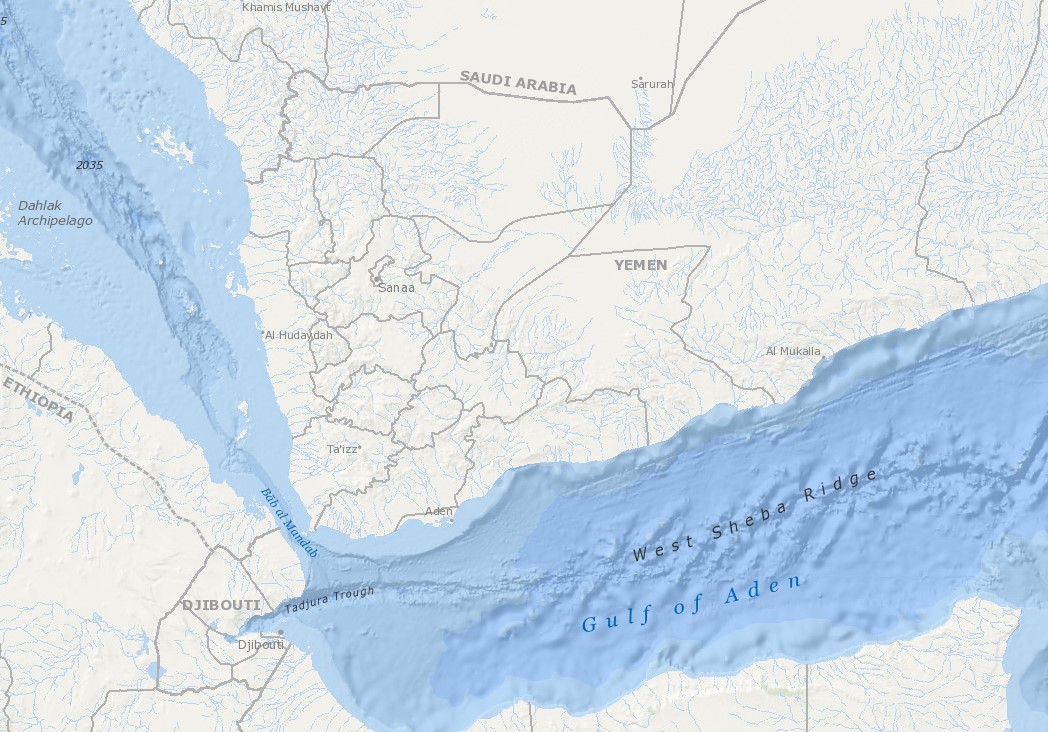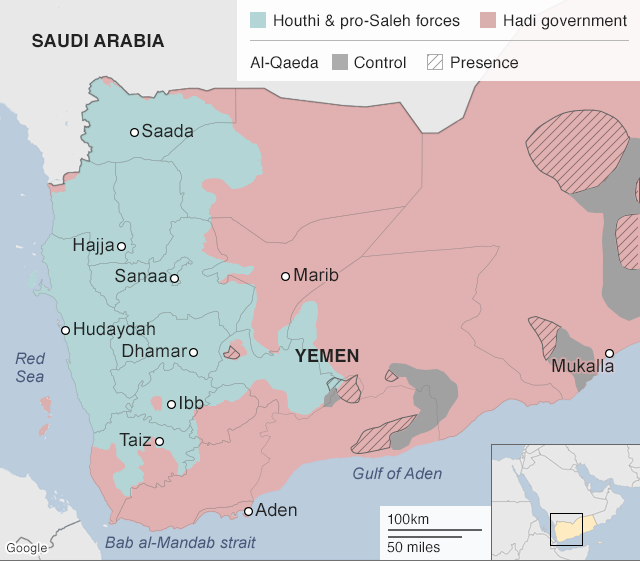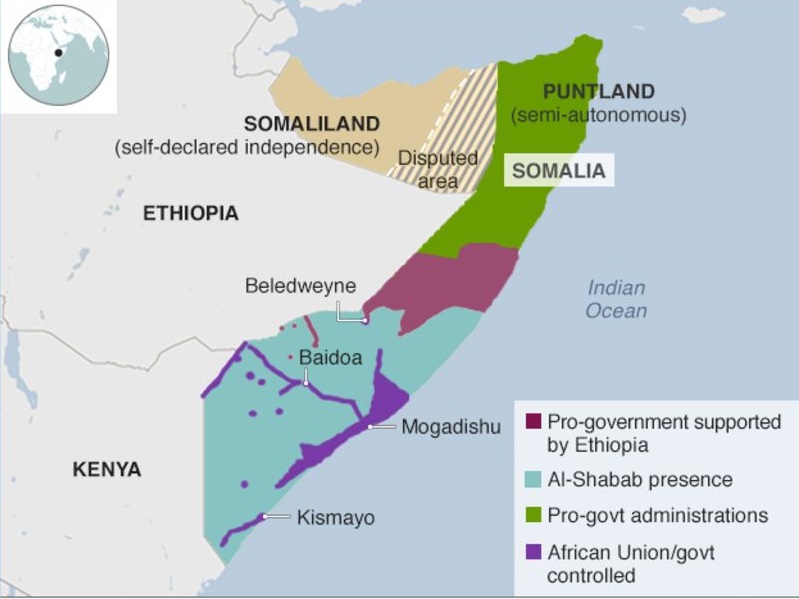Indian Ocean HRA Overview
Continued reported incidents reflect that the HRA remains a threat in regards to piracy activity in the region. Recent efforts to improve the security environment will reduce the impact of Somali piracy, however, continuing deterioration of onshore conditions in Somalia such as famine, terrorist groups, a weak central government and poor governance of coastal areas continue to influence piracy in the region. Pirate financiers capitalise on the chaos offering opportunities to local people. Piracy groups onshore Somalia still bear the motivation to try and carry out attacks and still with capability to target merchant vessels. Increasingly, vessels in the HRA are subjected to incidents that appear to be co-ordinated small boat piracy approaches however they choose not to ultimately attack. These incidents are then difficult to classify as attempted piracy or simply as regional patterns of life in the area. However, as seen in recent months there have been numerous attacks and attempted boarding’s ranging from incidents in the Somali Basin, Gulf of Oman, Gulf of Aden and the Southern Red Sea. The increased presence of naval patrols and armed security on board vessels act as a deterrent to the threat of piracy, however those vessels transiting in the area without the presence of armed security remain a significant risk.
Reported Incidents HRA
No incidents to report (UKMTO)
Yemen Update
At present the civil war in Yemen shows no sign of ending, neither side in the war has gained enough power and momentum to reunite the country under a single government. Saudi led coalition airstrikes continue in the Taiz province, Hudaydah province and Sanaa. The current military offensive along Yemen’s western coast started early last year and are aimed at cutting major offshore smuggling routes and securing the strategic Bab Al Mandab Strait.
Southern Yemeni separatists capture most of Aden: On the 31st January it was reported that Yemeni separatists have taken full control of the southern port city of Aden after days of fighting with government forces, residents report. The fighting now opens up a new front in Yemen splitting the alliance against Houthi rebels in the north. The clashes have already lead to the deaths of 40 people. The separatists are also reported to have seized Aden’s military bases.
Yemeni port of Aden seized by separatists: Reports issued this week state that separatists took control of the southern port of Aden. Clashes broke out this week between separatists supported by the UAE and troops loyal to President Hadi. Separatists seized government buildings and activists flew the flag of Southern Yemen. The two factions threaten to destabilise further the conflict in the country.
Separatists rescind ‘coup’ in south Yemen: After many days of fighting the Separatists handed back military bases to the internationally recognised government of President Hadi.
Ongoing Threat of Violence/Terrorism at Sea off the Coast of Yemen
- Yemen’s civil war has created an environment mirroring Somalia’s lawlessness. The ongoing conflict in Yemen demonstrates how poor security on land has led to violence spilling out into the maritime domain. Houthi rebels continue to control a large amount of Yemen’s red sea coastline.
- In relation to coalition forces advancing towards the Red Sea port city of Hudaydah, currently under Houthi rebel control, increases the risk to shipping in the region. In the past Houthi rebels have repeatedly threatened to attack merchant vessels in the region should coalition forces attempt to re-take Hudaydah port. If coalition forces seized Hudaydah it could be argued this would be a turning point in the civil war as the Houthi rebels would lose their main source of finance through the port in which illegal arms are smuggled.
- Unconfirmed reports surfaced on the 7th January 2018 stating that the Saudi coalition had destroyed at least one Houthi vessel near Hudaydah port after an alleged attack occurred against a Saudi oil tanker. The vessel was reported to be loaded with explosives and controlled remotely.
- The threat of terrorism at sea off the coast of Yemen remains by rebel groups and terrorist organisations such as AQAP. Such is highlighted by attacks against the LNG Tanker Galacia Spirit in October 2016 and the MT Muskie a product tanker in May 2017. Both involved the use of explosive laden skiffs, as an attempt to cause major devastation in the critical international shipping passage of the Bab-el-Mandeb.
- It remains a persistent threat that merchant vessels may be the subject of a miscalculated attack or as has been suggested recently, possibly threats of a calculated attack.
Somalia Update
The UN warned of a grim humanitarian outlook for 2018 in Somalia. Progress towards stability is impeded by extreme drought and hunger, al Shabaab’s continued violence and other enormous challenges. These challenges include pervasive corruption in politics and power-brokers willingness to use violence or threat of violence against opponents.
This Week
Somalia: 34,000 left homeless after army destroys camps: Somalia’s national army has demolished homeless shelters in the capital Mogadishu. Between 29 December and 19 January, 3,000 shelters were destroyed by Somalia’s military and police forces using bulldozers and heavy machinery. Somalia’s internally displaced were not given adequate notification and are currently on foot without basic amenities.
Bomb attack in Mogadishu kills 3: A roadside improvised explosive device exploded eight miles outside Somalia’s capital Mogadishu. The fatal incident took place in Taredishe village, the bomb missed a Somali national army vehicle and impacted a civilian minibus killing three and injuring two. No group has claimed responsibility for the attack however the Al-Qaeda affiliated Al-Shabaab frequently strikes targets in densely populated areas near Mogadishu.
Al Shabaab has been increasingly active in Somalia in recent months. The militant group has been battling the Somali Federal Government (SFG) in an effort to govern Somalia. Since 2013, al Shabaab pledged allegiance to al-Qaeda attracting the United States to execute raids and airstrikes against the group. However increased US airstrikes have not enabled African Union Mission (AMISOM) and Somali security forces to gain enough momentum against the terrorist group, al Shabaab has not suffered any great loss of territory or significant casualties from the airstrikes. Al Shabaab continues to maintain strongholds in southern and central Somalia and continue to carry out attacks against military and civilian targets. Somalia is a country whereby tribal loyalties are stronger than national ties. The SFG and Somali forces lack legitimacy outside of Mogadishu. Further to this, al Shabaab further exemplifies the issue of famine, terrorism and corruption making the prospect of stability in Somalia in the near future bleak. Al Shabaab is likely to maintain its present operational tempo in 2018 and further expand its territory in central and southern Somalia.
Piracy
In 2017 between March and May, five vessels were hijacked in Somali waters, whilst this was reported by many to be a resurgence of Somali piracy, it can be assessed as more likely to be a result of a permissive environment during the inter-monsoon period allowing skiffs and PAGS to operate with ease. Until the deep rooted issue of piracy in Somalia are resolved, piracy will continue to be a threat. 2017 saw the worst drought Somalia has seen in 40 years, this coupled with the struggling government and extreme militant violence has brought 6.7 million people into crisis. Pirate financiers capitalise on the chaos offering opportunities to local people. Pirate groups are known to operate in the coastal regions of Puntland, namely Eyl and further south in the Galmudug region, namely Hobyo. It is needless to say, as the increased instability in Somalia continues, it will serve as a permissive environment for piracy operations with an ongoing threat to shipping in the region.



